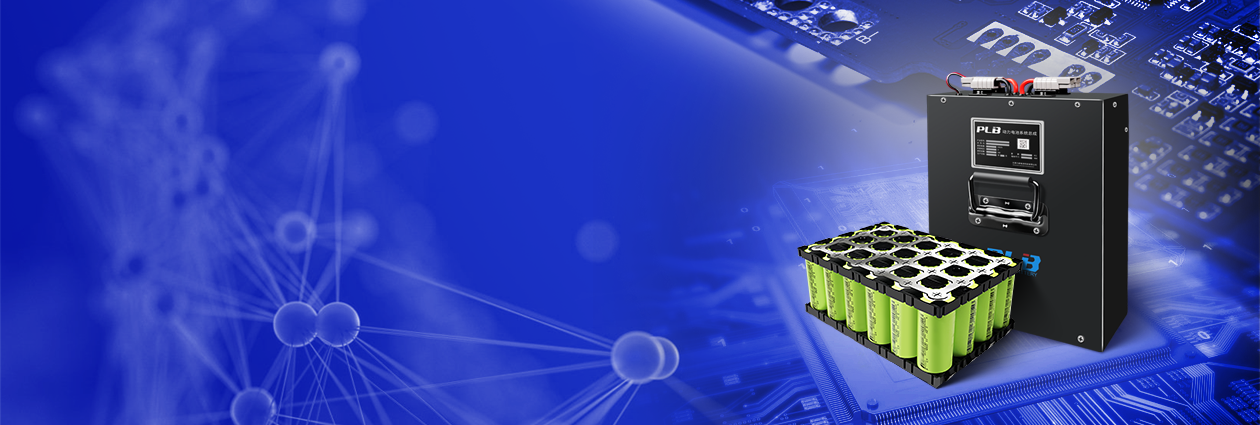-
Why LiFePO4 Batteries Are Better Suited for UPS Systems?
As modern life and industries demand greater power reliability, UPS (Uninterruptible Power Supply) systems have become essential for ensuring continuous equipment operation. At the heart of every UPS is its battery, which directly determines power stability and system lifespan. With technological advancements, UPS batteries have been transitioning from traditional lead-acid batteries to modern lithium iron phosphate (LiFePO4) batteries. But why are LiFePO4 batteries a better fit for UPS applications? This article explores this question and highlights the key advantages of LiFePO4 UPS batteries. The Limitations of Lead-Acid Batteries For many years, lead-acid batteries have been widely used in UPS systems due to their mature technology and low upfront cost. However, they come with several drawbacks in practical applications: Short Lifespan:Lead-acid batteries typically last 300-500 cycles. Prolonged float charging accelerates aging, leading to frequent replacements. Bulky and Heavy:With low energy density, lead-acid batteries require more space (LiFePO4 batteries are 1/2 the…
-
How to Choose the Right Battery for Rural Solar Street Lights?
As rural development progresses, solar street lights have been widely adopted in rural areas. These lights not only save energy but also address the challenge of powering remote areas without access to the grid. Among the components of solar street lights, the battery plays a critical role. A high-performance battery can significantly extend the lifespan of the system while reducing maintenance costs. So, how should you choose the battery for rural solar street lights? This article explores the best battery options from the perspectives of performance, lifespan, cost, and environmental impact. Key Requirements for Rural Solar Street lights Compared to urban, rural solar street lights have unique requirements and operating conditions: 1.Independent from Grid Power Many rural areas lack access to grid electricity, so solar street lights must rely entirely on solar power. This places high demands on the battery’s energy storage capacity. 2.Challenging Environmental Conditions Rural environments often experience…
-
8 Advantages of PLB LiFePo4 Motorcycle Starter Batteries
Motorcycle enthusiasts demand more from their motorcycle starter batteries, and a reliable motorcycle starter battery is crucial for performance. As an experienced lithium iron phosphate battery manufacturer, we deliver top-notch solutions that excel in safety, stability, and innovation. Here’s a quick rundown of the eight standout advantages of our motorcycle starter batteries: 1. Lightweight and Easy to Install Say goodbye to heavy, bulky batteries! PLB starter batteries use robust cylindrical LiFePO4 cells, making them 70% lighter and 1/3 smaller than traditional lead-acid batteries. The smallest model weighs just 680g, making installation a breeze and enhancing your motorcycle’s performance by reducing overall weight. 2. Built for Safety and Long Life Safety matters, and our LiFePO4 batteries deliver. With excellent thermal stability, they stay stable under high temperatures and won’t overheat, even during overcharging. A sturdy steel casing and safety valve prevent bulging, ensuring a lifespan of up to 6,000 cycles—that’s years…
-
PLB Battery: Your Safest Lithium Battery Choice
As the demand for lithium batteries grows, safety and durability have become top priorities for consumers. With 20 years of experience, PLB Battery, a professional manufacturer of lithium iron phosphate batteries, is dedicated to providing high-quality, safe battery solutions for customers worldwide. Our batteries meet a wide range of international safety certifications, including UL1642, UL1973, UL2054, UL2580, IEC62133, IEC62619, UN38.3, RoHS, REACH, BIS, and more. In this article, we’ll dive into how PLB has set the standard for safety and durability in the industry through strict certifications, safety standards, and cutting-edge battery technology. Strict Safety Certifications for Reliable Quality At PLB, safety is our top priority. Lithium iron phosphate batteries are naturally safer than other battery types because of their chemical stability. But we don’t stop there. We continuously innovate to further enhance the safety and durability of our batteries, meeting the high standards of various industries. 1. UL Certification:…
-
PLB LiFePO4 Starting Battery: Efficient, Safe, and Lightweight
Battery technology has come a long way, and starting batteries have moved beyond traditional lead-acid to advanced lithium alternatives. PLB Battery, a leading lithium battery manufacturer in China, now offers lithium iron phosphate (LiFePO4) starting batteries for motorcycles, cars, and emergency starters. These batteries are efficient, safe, and lightweight, giving you reliable starting performance in all kinds of environments and extending battery life. Here’s a closer look at the key advantages of PLB’s lithium iron phosphate starting batteries and how they stand out in starting applications. Key Advantages of PLB LiFePO4 Batteries Lithium iron phosphate (LiFePO4) is well-known for its thermal stability and safety, making it an excellent choice as a positive electrode material in lithium batteries. Compared to lead-acid batteries, LiFePO4 batteries are better in energy density, lifespan, and weight. PLB’s starting batteries use high-safety cylindrical LiFePO4 cells paired with an in-house battery management system (BMS), creating an ideal…
-
What Are the Common Types of Car Batteries?
Car batteries are essential components of the vehicle starting system, providing the initial power needed to start the engine and supplying electricity to various on-board devices, such as lights, wipers, and audio systems. This article covers the main types of car batteries, their features, and answers some common questions about car battery. The three most common types of car batteries are lead-acid batteries, nickel-metal hydride (NiMH) batteries, and lithium iron phosphate (LiFePO₄) batteries. Below, we’ll explore each of these in detail. 1. Lead-Acid Batteries Lead-acid batteries are the most widely used type in traditional internal combustion engine vehicles, where they power the engine starter and on-board electronics. Their chemical reaction involves lead, lead dioxide, and sulfuric acid, which generates electrical energy by forming lead sulfate. Lead-acid batteries come in several designs, each suited to different needs: Flooded Lead-Acid Batteries: These batteries are made with lead plates immersed in a liquid…
-
PLB Battery Passed The IATF16949,ISO9001,ISO14001 Recertification Audit
In April 2024, a team of experts from SGS, a globally recognized certification body, visited Dongguan Power Long Battery Technology Co., Ltd. to conduct a recertification audit of our ISO 9001 quality management system and IATF 16949 automotive quality management system. Then, in May, we underwent another audit for our ISO 14001 environmental management system. After a thorough review and evaluation, we’re proud to announce that PLB Battery successfully passed all recertification audits and received certification for the new cycle from 2024 to 2027! IATF16949 Certificate ISO9001 Certificate ISO14001 Certificate During the audits, the expert team conducted a detailed assessment of our quality and environmental management systems through on-site inquiries, inspections, and sampling. They reviewed various aspects, including our system planning documents and operational processes. Since first obtaining IATF16949, ISO9001, and ISO14001 certifications in 2015, we have now maintained these certifications for ten consecutive years. This achievement is a testament…
-
Which Emergency Jump Starter Battery is the Best?
An emergency jump starter is a lifesaver when your car battery dies. But the real powerhouse behind any jump starter is its battery, and that directly affects how well it works. More and more, manufacturers are turning to lithium iron phosphate (LiFePO4) batteries, and with good reason. Our LiFePO4 battery pack, built with high-performance 26650 cells, is the one we recommend. It’s safe (no swelling), delivers a 2000A peak current, lasts a long time on standby, and has a great lifespan. Let’s explore why our LiFePO4 battery pack stands out and how it powers up jump starters. 1. High-C-Rate LiFePO4 26650 Cells: High Safety and Stability When jump-starting a car, you need a battery that can deliver a big current fast. Therefore battery safety and discharge performance are key here. Our high-C-rate LiFePO4 cells have clear advantages over traditional lead-acid or other lithium batteries. LiFePO4’s stable chemical structure means it’s…
-
PLB LiFePO4 Starter Battery Empowers Motorcycles
PLB Battery has recently launched a high-rate, intelligent series of LiFePO4 motorcycle starter batteries. These batteries come with a built-in intelligent Battery Management System (BMS) that monitors battery status in real-time and automatically switches to sleep mode when the charge is low. This helps extend the standby time while ensuring the motorcycle has enough power to start when needed. It also supports customizable voice activation for easy motorcycle starting. With PLB motorcycle starter batteries, you no longer have to worry about difficulty starting the motorcycle! Key Features: – High-rate LiFePO4 cylindrical cells, safe and bulge-free. – Equipped with intelligent BMS for full protection. – Supports low-temperature starting, unaffected by environmental conditions. – 12V design for broad compatibility. – Customizable AI wake-up function for a smarter riding experience. Cylindrical Cells: High Safety, No Bulging Conventional polymer batteries often bulge over time due to high temperatures or overcharging, leading to shorter lifespan…
-
Why LiFePO4 Batteries Have Become the Mainstream Choice for AGVs
In modern automated logistics and manufacturing, Automated Guided Vehicles (AGVs) have become vital tools for improving production efficiency and reducing labor costs. However, companies not only expect AGVs to operate smoothly but also require them to function efficiently and reliably over long periods, consistently handling transportation tasks while maintaining sufficient battery life to adapt to complex and dynamic work environments. The battery, as the core power source of the AGV, plays a critical role in achieving these goals. The battery’s endurance, charging efficiency, and stability directly affect whether the AGV can maintain continuous and stable operations, impacting the overall efficiency and productivity of the automated system. Therefore, selecting a high-performance battery is key to enabling AGVs to operate optimally. Currently, the most commonly used battery types in AGVs include lead-acid batteries, LiFePO4 batteries, and ternary lithium batteries. Due to the high production cost and lower safety of ternary lithium batteries…


